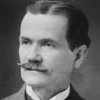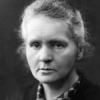O my dear brother, what is there to say?
In vision I already see a time —
and it is not far distant from this day —
in which the pulpit shall denounce by writ
the shameless jades that Florentines call ladies,
who go about with breasts bare to the tit.
What Moslem woman ever has required
a priestly discipline, or any other,
before she would go decently attired?
But if the chippies only could foresee
swift Heaven’s punishment, they’d have their mouths
already open to howl misery.[O dolce frate, che vuo’ tu ch’io dica?
Tempo futuro m’è già nel cospetto,
cui non sarà quest’ora molto antica,
nel qual sarà in pergamo interdetto
a le sfacciate donne fiorentine
l’andar mostrando con le poppe il petto.
Quai barbare fuor mai, quai saracine,
cui bisognasse, per farle ir coperte,
o spiritali o altre discipline?
Ma se le svergognate fosser certe
di quel che ’l ciel veloce loro ammanna,
già per urlare avrian le bocche aperte.]Dante Alighieri (1265-1321) Italian poet
The Divine Comedy [Divina Commedia], Book 2 “Purgatorio,” Canto 23, l. 97ff (23.97-108) (1314) [tr. Ciardi (1961)]
(Source)
Forese Donati speaking to Dante, anticipating the "future" (already-past) travails of Florence in the early 1300s, apparently brought about (in part) by the city's shameless women being scantily clad (though no such church edict survives in the record).
Source (Italian)). Alternate translations:
O, Brother! shall I tell, or hide my thought?
The horrible display that Fancy views,
Which soon the pregnant moments will produce,
And Impudence and Pride's disgraceful lot.
Soon a stern Voice will teach the shameless kind
A decent covering, as they may, to find,
Their naked shoulders from the Sun to hide!
Was it amongst Barbarians ever known,
That nought but threats can bind the modest Zone,
On the young virgin and the plighted Bride?
But if these dainty Dames could read the Skies,
And spy the slumb'ring tempest soon to rise,
Those lips that whisper Love, would shriek Despair.
[tr. Boyd (1802), st. 19-21]
O sweet brother!
What wouldst thou have me say? A time to come
Stands full within my view, to which this hour
Shall not be counted of an ancient date,
When from the pulpit shall be loudly warn’d
Th’ unblushing dames of Florence, lest they bare
Unkerchief’d bosoms to the common gaze.
What savage women hath the world e’er seen,
What Saracens, for whom there needed scourge
Of spiritual or other discipline,
To force them walk with cov’ring on their limbs!
But did they see, the shameless ones, that Heav’n
Wafts on swift wing toward them, while I speak,
Their mouths were op’d for howling.
[tr. Cary (1814)]
Oh dear brother! what shall I say to thee?
A future time now within my view,
To which the present hour will be but new,
When interdict will issue from the chair
To Florence ladies of effrontery,
With naked bosoms, where the pays you spy.
Barbarians and Saracens were there e'er
Forced to go covered, and their right mind in,
By spiritual or other discipline?
Their future lot could but the shameless see,
What the swift Heaven is bringing on its wing,
To howl their mouths would soon be opening.
[tr. Bannerman (1850)]
O brother sweet, what wilt thou have me say?
A future time is in my sight already,
To which this hour will not be very old,
When from the pulpit shall be interdicted
To the unblushing womankind of Florence
To go about displaying breast and paps.
What savages were e'er, what Saracens,
Who stood in need, to make them covered go,
Of spiritual or other discipline?
But if the shameless women were assured
Of what swift Heaven prepares for them, already
Wide open would they have their mouths to howl.
[tr. Longfellow (1867)]
O brother dear, what wouldst have further told?
A future time already do I see,
In which the present day will not be old.
When in the Church they'll publish a decree
Against the insolent lady Florentines,
Not to expose their breasts for all to see.
When were Barbarians seen or Saracens,
To whom was needed clothing to enforce.
Or spiritual, or other disciplines?
But if the shameless ones could see the course
Which Heaven prepareth for them speedily.
Now would begin their howlings of remorse.
[tr. Minchin (1885)]
O sweet brother, what wouldst thou that I say? A future time is already in my sight, to which this hour will not be very old, in which from the pulpit it shall be forbidden to the brazen-faced dames of Florence to go displaying the bosom with the paps. What Barbarian, what Saracen women were there ever who required either spiritual or other discipline to make them go covered? But if the shameless ones were aware of that which the swift heaven is preparing for them, already would they have their mouths open for howling.
[tr. Norton (1892)]
O sweet brother, what would st thou have me say? Already in my vision is a time to come to which this hour shall not be very old,
when the brazen-faced women of Florence shall be forbidden from the pulpit to go abroad showing their breasts with the paps.
What Barbary, what Saracen women ever lived, to whom either spiritual, or other discipline were necessary, to make them go covered?
But if the shameless creatures were assured of what swift heaven is preparing for them, already would they have their mouths open to howl.
[tr. Okey (1901)]
O sweet brother, what wilt thou have me say? A coming time is already before my eyes to which this hour will not be very old when from the pulpit it shall be forbidden to the brazen women of Florence to go showing the breast with the paps. What barbarous women, what Saracens, ever were there that needed, to make them go covered, spiritual disciplines or any other? But had the shameless creatures knowledge of what the swift heavens prepare for them, they would have their mouths open already for howling.
[tr. Sinclair (1939)]
O sweet brother, what would'st thou have me say?
A time to come already I see indeed,
Wherefrom this hour shall not be far away.
In which from pulpit shall it be forbid
To the unashamed women of Florence then
To go showing the breast with paps not hid.
What woman of Barbary, what Saracen,
did ever need, to make her go covered,
Spiritual or other regimen?
But if the unabashed ones were assured
Of what swift heaven prepares for them on high
Their mouths would open and their howls be heard.
[tr. Binyon (1943)]
Brother of mine, what wilt thou have me say?
This hour shall not be very old perhaps
Ere time shall bring what I foresee to-day:
A pulpit interdict, no less, which claps
Down on our brazen jades of Florentines
Flaunting unveiled the bosom and the paps.
What female Turk or Berber e'er showed signs
Of needing to be covered up by force
Of spiritual or other disciplines?
But could these wantons know what Heaven's swift course
Prepares for them, they'd have their mouths ajar
Already, fit to bellow themselves hoarse.
[tr. Sayers (1955)]
O sweet brother, what would you have me say? Already in my vision is a future time, to which this hour shall not be very old, when the brazen-faced women of Florence shall be forbidden from the pulpit to go displaying their breasts with the papas. What Barbarian, what Saracen women were there ever, who required either spiritual or other discipline to make them go covered? But if the shameless creatures were assured of what swift heaven is preparing for them, already would they have their mouths open to howl.
[tr. Singleton (1973)]
My dear brother, how can I tell you this:
I see a future time -- it won't be long --
in which bans from the pulpit shall clamp down
on those ladies of Florence who, bold-faced,
now walk our city streets as they parade
their bosom to the tits! What barbarous girl,
what female Saracen, had to be taught
spiritual discipline, or anything,
to keep her body decently concealed?
But if these shameless creatures only knew
what the swift heavens have in store for them,
they would by now be screaming their heads off!
[tr. Musa (1981)]
O gentle brother, what do you want me to say?
Already I can see a time ahead,
Before the present hour is very old,
In which the impudent women of Florence
Will be preached against from the pulpit because
They go about showing their breasts to the nipples.
What women of Barbary, what Saracens
Ever needed, to make them go covered,
Either spiritual or other discipline?
But if the shameless creatures were assured
Of what swift heaven is getting ready for them,
They would have their mouths open already, to howl.
[tr. Sisson (1981)]
O
sweet brother, what would you have had me say?
A future time’s already visible
to me -- a time not too far-off from now --
when, from the pulpit, it shall be forbidden
to those immodest ones -- Florentine women --
to go displaying bosoms with bare paps.
What ordinances -- spiritual, civil --
were ever needed by barbarian or
Saracen women to make them go covered?
But if those shameless ones had certain knowledge
of what swift Heaven’s readying for them,
then they would have mouths open now to howl.
[tr. Mandelbaum (1982)]
O sweet brother, what would you have me say? Already I foresee a time to come, to which this time will not be too distant, when, from the pulpits, the brazen women of Florence will be forbidden to go round displaying their breasts and nipples.
When was there ever a Saracen woman, or woman of Barbary, who needed disciplining spiritually or otherwise, to force her to cover herself? But the shameless creatures would already have their mouths open to howl.
[tr. Kline (2002)]
O dear brother, what can I say? A future time is already in my sight when this hour will not seem very ancient, when from the pulpit it will be forbidden to the brazen Florentine women to walk about showing their chests with their breasts.
What barbarian women, what Saracens ever needed either spiritual or other penalties to make them go covered up?
But if those shameless ones knew what the swift heavens are preparing for them, they would already have opened their mouths to howl.
[tr. Durling (2003)]
What, dearest brother, would you have me say?
A future time, already in my sight,
will come (when our time’s still not history),
when, from the pulpit, there’ll be issued bans
forbidding bare-faced Florence girls to go
with blatant breasts and both their boobs on show.
What mere barbarians or Saracens
required a priest or threat of on-spot fines
to make them cover up when they go out!
If, though, these brazen creatures only guessed
what Heaven so swiftly will bring down on them,
then they’d already howl with open mouths.
[tr. Kirkpatrick (2007)]
O sweet brother, what would you have me say?
In my vision even now I see a time,
before this hour shall be very old,
when from the pulpit it shall be forbidden
for the brazen ladies of Florence
to flaunt their nipples with their breasts.
What barbarous women, what Saracens,
have ever needed spiritual instruction
or other rules, to walk about in proper dress?
But if these shameless creatures knew
what the swift heavens are preparing, even now
their mouths would be spread open in a howl.
[tr. Hollander/Hollander (2007)]
O, my sweet brother, what can you ask me to say?
Looking into the future, I already see --
And the hour will not be long in coming, I believe --
When priests in our pulpits will forbid Florence's lewd
And insolent women from going about the streets,
Their breasts bare well below the nipples.
Were there ever barbarian women, or Turks,
Who needed heavy discipline -- by priests
Or by law -- to keep them decently covered? But such
Disgraceful creatures, should they realize
For sure what quick-handed Heaven has ready for them,
They'd now be ready to open their mouths and howl!
[tr. Raffel (2010)]
Quotations about:
clothing
Note not all quotations have been tagged, so Search may find additional quotes on this topic.
A plain appearance is to ordinary men their proper garb: it suits them and fits them, but it adorns those persons whose lives have been distinguished by grand deeds; I compare them to a beauty who is most charming in négligé.
[Un extérieur simple est l’habit des hommes vulgaires, il est taillé pour eux et sur leur mesure; mais c’est une parure pour ceux qui ont rempli leur vie de grandes actions: je les compare à une beauté négligée, mais plus piquante.]
Jean de La Bruyère (1645-1696) French essayist, moralist
The Characters [Les Caractères], ch. 2 “Of Personal Merit [Du Mérite Personnel],” § 17 (2.17) (1688) [tr. Van Laun (1885)]
(Source)
(Source (French)). Alternate translations:
That Simplicity of outward Appearance, which in vulgar Men seems to be their proper Clothes, shap'd and fitted to their Size, is the ornamental Habit of those Persons whose Lives have been full of great Actions. I compare 'em to a Beauty, that is more charming for being negligent.
[Curll ed. (1713)]
A plain Exterior is to ordinary Men their proper Garb, shaped and fitted to their Size, but is an ornamental Habit in those Persons whose Lives have been distinguished by signal Actions. I compare them to a Beauty, most charming when à la negligé.
[Browne ed. (1752)]
Outward simplicity befits ordinary men, like a garment made to measure for them; but it serves as an adornment to those who have filled their lives with great deeds: they might be compared to some beauty carelessly dressed and thereby all the more attractive.
[tr. Stewart (1970)]
We smile at the women who are eagerly following the fashions in dress whilst we are as eagerly following the fashions in thought.
Austin O'Malley (1858-1932) American ophthalmologist, professor of literature, aphorist
Keystones of Thought (1914)
(Source)
I have no dress except the one I wear every day. If you are going to be kind enough to give me one, please let it be practical and dark so that I can put it on afterwards to go to the laboratory.
Marie Curie (1867-1934) Polish-French physicist and chemist [b. Maria Salomea Skłodowska]
Letter to Casimir Dluski’s mother on her offer of a wedding dress (1895)
(Source)
Regarding an offered wedding dress for her marriage to Pierre Curie (1865-07-26). As quoted in Eve Curie Labouisse, Madame Curie: A Biography, ch. 8 (1937) [tr. Sheean (1938)].
Your clothes should be according to the custom of those like you in age and condition. We do not have the power to change customs as we see fit, for it is time that creates them and likewise it is time that destroys them.
[I tuoi panni convien che siano secondo il costume degli altri di tuo tempo o di tua conditione, per le cagioni che io ho dette di sopra; ché noi non abbiamo potere di mutar le usanze a nostro senno, ma il tempo le crea, e consumale altresì il tempo.]
Giovanni della Casa (1503-1556) Florentine poet, author, diplomat, bishop
Galateo: Or, A Treatise on Politeness and Delicacy of Manners [Il Galateo overo de’ costumi], ch. 28 (1558) [tr. Eisnbichler/Bartlett (1986)]
(Source)
(Source (Italian)). Alternate translations:
Your apparel must be shaped according to the fashion of the time, and your calling [...] For we must not take upon us to alter customs at our will. For time doth beget them and time doth also wear them out.
[tr. Peterson (1576)]
Let your dress [...] be conformable to the customs of the age you live in, and suitable to your condition; for it is not in our power to alter the general fashions at our pleasure; which, as they are produced, so they are swallowed up by time.
[tr. Graves (1774)]
Male supremacy: Doctrine built upon three forms of superiority: the ability to grow a handlebar mustache, the ability to answer most of Nature’s calls efficiently, and the possession of pockets.
Marie Shear (1940-2017) American writer and feminist activist
“Media Watch: Celebrating Women’s Words,” New Directions for Women (May/Jun 1986)
(Source)
Pocket Envy: Women’s unfulfilled yearning for practical clothes
Marie Shear (1940-2017) American writer and feminist activist
“Media Watch: Celebrating Women’s Words,” New Directions for Women (May/Jun 1986)
(Source)
Our ancestors used to wear decent clothes, well-adapted to the shape of their bodies; they were skilled horsemen and swift runners, ready for all seemly undertakings. But in these days the old customs have almost wholly given way to new fads. Our wanton youth is sunk in effeminacy, and courtiers, fawning, seek the favors of women with every kind of lewdness. […] They sweep the dusty ground with the unnecessary trains of their robes and mantles; their long, wide sleeves cover their hands whatever they do; impeded by these frivolities they are almost incapable of walking quickly or doing any kind of useful work.
Orderic Vitalis (1075-c. 1142) English monk, chronicler
Historia Ecclesiastica, Book 4 [tr. Chibnall (1969-80)]
Alt. trans.: "Our ancestors used to wear decent clothes, nicely fitted to the shape of their bodies and suitable for riding and running and performing every task that they should reasonably perform. But in these wicked days the practices of olden times have almost completely given way to novel fads."
The Right Hon. was a tubby little chap who looked as if he had been poured into his clothes and had forgotten to say “When!”
P. G. Wodehouse (1881-1975) Anglo-American humorist, playwright and lyricist [Pelham Grenville Wodehouse]
Very Good, Jeeves (1930)
(Source)
CONRADE: The fashion wears out more apparel than the man.
William Shakespeare (1564-1616) English dramatist and poet
Much Ado About Nothing, Act 3, sc. 3, l. 139 (3.3.139) (1598)
(Source)
Your beauty should not come from outward adornment, such as elaborate hairstyles and the wearing of gold jewelry or fine clothes. Rather, it should be that of your inner self, the unfading beauty of a gentle and quiet spirit, which is of great worth in God’s sight.
The Bible (The New Testament) (AD 1st - 2nd C) Christian sacred scripture
1 Peter 3:3-4 [NIV (2011)]
(Source)
Alternate translations:
Whose adorning let it not be that outward adorning of plaiting the hair, and of wearing of gold, or of putting on of apparel; But let it be the hidden man of the heart, in that which is not corruptible, even the ornament of a meek and quiet spirit, which is in the sight of God of great price.
[KJV (1611)]
Do not dress up for show: doing up your hair, wearing gold bracelets and fine clothes; all this should be inside, in a person’s heart, imperishable: the ornament of a sweet and gentle disposition -- this is what is precious in the sight of God.
[Jerusalem (1966)]
You should not use outward aids to make yourselves beautiful, such as the way you fix your hair, or the jewelry you put on, or the dresses you wear. Instead, your beauty should consist of your true inner self, the ageless beauty of a gentle and quiet spirit, which is of the greatest value in God's sight.
[GNT (1976)]
Do not adorn yourselves outwardly by braiding your hair, and by wearing gold ornaments or fine clothing; rather, let your adornment be the inner self with the lasting beauty of a gentle and quiet spirit, which is very precious in God’s sight.
[NRSV (1989)]
I didn’t think it was possible to not care about something less than I did about football, but clothes were it. Most guys really don’t give a damn. Clothes were the things that, if you were a guy, you wore to keep warm, and that a girl wore so that you wouldn’t see her naked, and what guy is in favor of that?
Fashion is something barbarous, for it produces innovation without reason and imitation without benefit.
George Santayana (1863-1952) Spanish-American poet and philosopher [Jorge Agustín Nicolás Ruíz de Santayana y Borrás]
The Life of Reason or The Phases of Human Progress, Vol. 3 “Reason in Religion, ch. 7 (1905-06)
(Source)
Clothes make the man. Naked people have little or no influence on society.
Mark Twain (1835-1910) American writer [pseud. of Samuel Clemens]
(Attributed)
First found in Merle Johnson, More Maxims of Mark (1927), and generally considered authentic. More info here.
There is no such thing as a moral dress. It’s people who are moral or immoral.

















